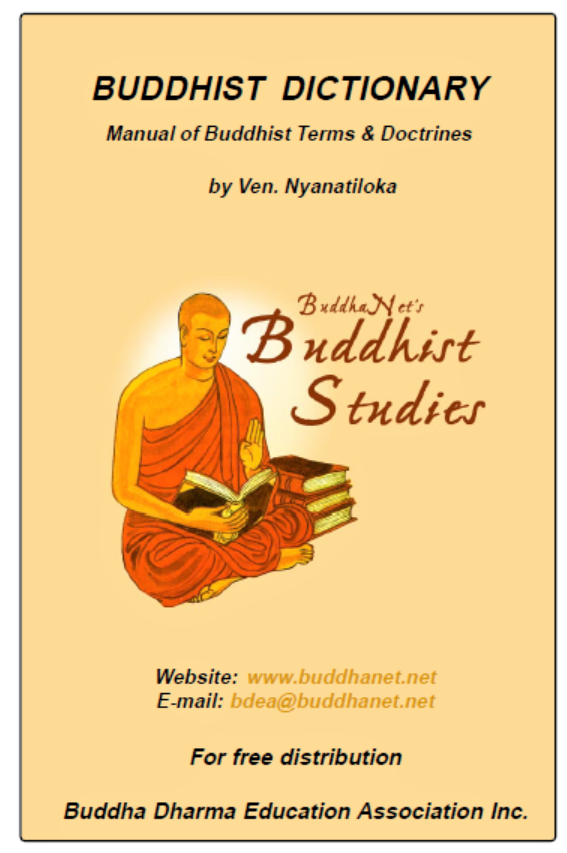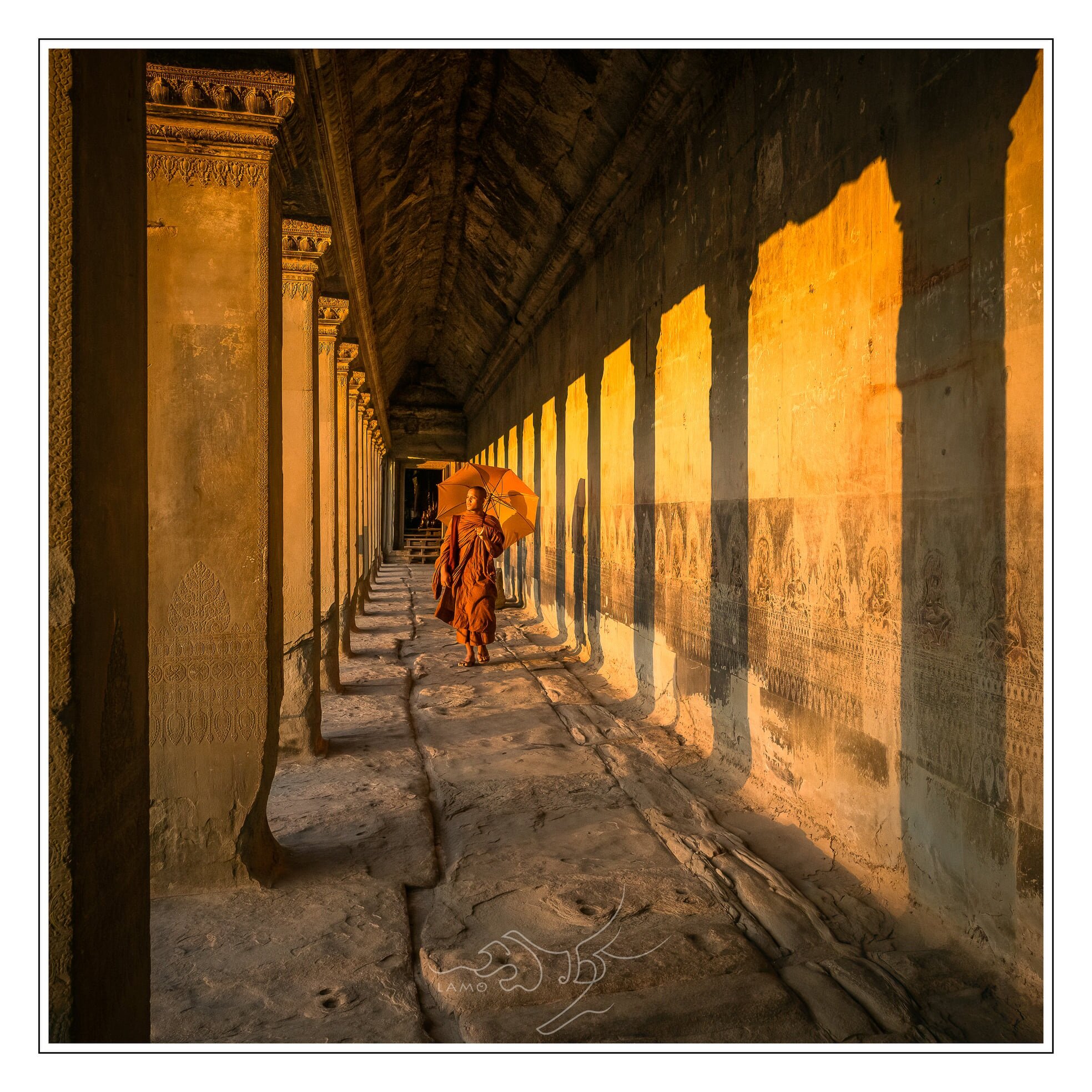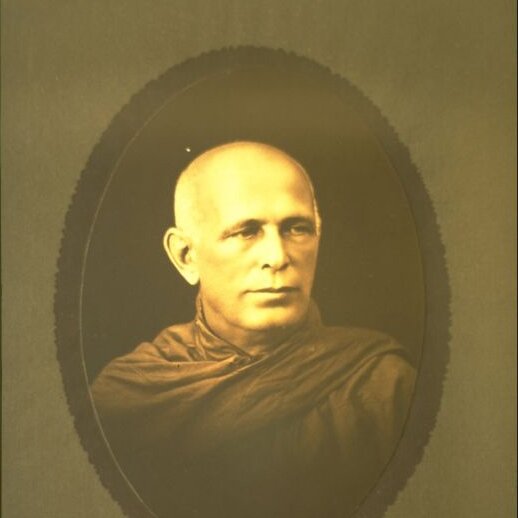The Venerable Nyanatiloka (19 Feb. 1878, Wiesbaden, Germany – 28 May 1957, Colombo, Ceylon [Sri Lanka]), born as Anton Walther Florus Gueth, was one of the earliest Westerners in modern times to become a Bhikkhu, a fully ordained Buddhist monk. Known as Nyanatiloka Mahathera (a Sanskrit and Pali term of reverence to distinguished venerable monks and nuns), he authored several studies on Theravada Buddhism and a Manual of Buddhist Terms and Doctrines (Buddhist Publication Society, 1st edition: Kandy, Sri Lanka, 1952), the Presentation of which he completed and dated “Central Internment Camp, Dehra-Dun, India, 28 – 08-1946”.
His German citizenship forced him into exile and internment during both World War I and II, while he was living in British colonized Ceylon and Burma, and in China, and he took refuge in Japan after the first world conflict. However, he was given a state funeral at his death in Colombo, with the then Prime Minister of Sri Lanka, Hon. S.W.R.D Bandaranaike delivering the funeral orationm, and a memorial stone was erected for him.
Nyanatiloka had discovered Buddhism in his youth in Germany, when he was attracted to philosphy and music. Eager to deepen his knowledge of Pali and Pali scriptures, he went to Sri Lanka in 1905. For a year, he studied and meditated on the small island of Galgodiyana with the Siamese prince monk Jinavaravamsa, previously known as Prince Prisdang Jumsai, the first Siamese Ambassador to Europe.
In a report on the state of Cambodian Buddhism after the civil war, in 2009, reporter Rollo Romig recalled: ‘According to monk Yos Hut, “we have enough pagodas, we need to spend money on teachers, not just on expensive buildings.” I asked him if he was worried about the future of Cambodian Buddhism. “Oh, no, no,” he said, giggling at the absurdity of the suggestion. “No worry. We try to see things as they are, and try to do what we can.” [Then,] he handed me a packet of photocopies, lectures by the German monk Nyanatiloka Mahathera, and told me to read.’



